 W
WPetrus Albinus was a professor at Wittenberg in Germany and is known as the father of Saxon historiography.
 W
WGelibolulu Mustafa Âlî bin Ahmed bin Abdülmevlâ Çelebi was an Ottoman historian, bureaucrat and major literary figure.
 W
WAndreas Angelus was a German clergyman, teacher and government inspector, known for his chronicles of the history of the Margraviate of Brandenburg.
 W
WPeter Martyr d'Anghiera, formerly known in English as Peter Martyr of Angleria, was an Italian historian at the service of Spain during the Age of Exploration. He wrote the first accounts of explorations in Central and South America in a series of letters and reports, grouped in the original Latin publications of 1511 to 1530 into sets of ten chapters called "decades." His Decades are of great value in the history of geography and discovery. His De Orbe Novo describes the first contacts of Europeans and Native Americans, Native American civilizations in the Caribbean and North America, as well as Mesoamerica, and includes, for example, the first European reference to India rubber. It was first translated into English in 1555, and in a fuller version in 1912.
 W
WValerius Anshelm, born as Valerius Rüd, was a Swiss chronicler working in Bern.
 W
WJohn Bale was an English churchman, historian and controversialist, and Bishop of Ossory. He wrote the oldest known historical verse drama in English, and developed and published a very extensive list of the works of British authors down to his own time, just as the monastic libraries were being dispersed. His unhappy disposition and habit of quarrelling earned him the nickname "bilious Bale".
 W
WJános Baranyai Decsi or János Csimor Baranyai Decsi is a Hungarian Renaissance writer who lived in the 16th century. He lived in the Transylvanian court of Báthory Zsigmond.
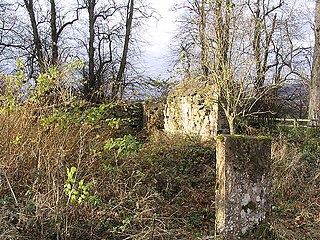 W
WDavid Calderwood was a Church of Scotland minister and historian. Calderwood was banished for his nonconformity, he found a home in the Low Countries, where he wrote his great work, the Altare Damasccnum. It was a serious attack on Anglican Episcopacy. Patiently and perseveringly Calderwood goes over the whole. The Bible, the Fathers, and the Canonists, are all referenced. Calderwood lived to see the principles for which he had suffered, and which he had defended, in complete ascendency. He was present at the Glasgow Assembly in 1638, and saw Prelacy and the Ceremonies swept away. He breathed his last at Jedburgh, a fugitive from his parish of Pencaitland; and they laid him in the churchyard of Crailing, where the first years of his ministry were spent.
 W
WNicholas Camusat was a French historian born in Troyes in 1575, and died in 1655. His works are:Chronologia ab origine orbis, usque ad ann. 1200. 4to. Promptuarium sacrarum antiquitatum Tricassinae diocesis, 1610, 8vo. Historia Albigensium, 1615. Meslanges Historiques, 1619, 8vo.
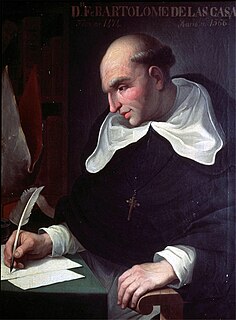 W
WBartolomé de las Casas was a 16th-century Spanish landowner, friar, priest, and bishop, famed as a historian and social reformer. He arrived in Hispaniola as a layman then became a Dominican friar and priest. He was appointed as the first resident Bishop of Chiapas, and the first officially appointed "Protector of the Indians". His extensive writings, the most famous being A Short Account of the Destruction of the Indies and Historia de Las Indias, chronicle the first decades of colonization of the West Indies. He described the atrocities committed by the colonizers against the indigenous peoples.
 W
WFernão Lopes de Castanheda was a Portuguese historian in the early Renaissance. His "History of the discovery and conquest of India", full of geographic and ethnographic objective information, was widely translated throughout Europe.
 W
WFrancisco Cervantes de Salazar was a Spanish man of letters and rector of the Royal and Pontifical University of Mexico, founded in 1551.
 W
WSamuel Daniel was an English poet and historian.
 W
WMichaël Eytzinger, was an Austrian nobleman, diplomat, historian, and publicist, who wrote and published several works, including a renowned volume that states the principles of a genealogical numbering system, called an Ahnentafel, that is still in use today.
 W
WAntónio Galvão, also known as Antonio Galvano, was a Portuguese soldier, chronicler and administrator in the Maluku islands, and a Renaissance historian who was the first person to present a comprehensive report of the leading voyages and explorers up to 1550 by Portuguese explorers and those of other nationalities. His works, especially the Treaty of Discovery that was published in Lisbon in 1563 and in English by Richard Hakluyt in 1601, are notably accurate.
 W
WDavid Gans, also known as Rabbi Dovid Solomon Ganz, was a Jewish chronicler, mathematician, historian, astronomer and astrologer. He is the author of "Tzemach David" (1592) and therefore also known by this title, the צמח דוד.
 W
WFrancisco López de Gómara was a Spanish historian who worked in Seville, particularly noted for his works in which he described the early 16th century expedition undertaken by Hernán Cortés in the Spanish conquest of the New World. Although Gómara himself did not accompany Cortés, and had in fact never been to the Americas, he had firsthand access to Cortés and others of the returning conquistadores as the sources of his account. However other contemporaries, among them most notably Bernal Díaz del Castillo, criticised his work as being full of inaccuracies, and one which unjustifiably sanitised the events and aggrandised Cortés' role. As such, the reliability of his works may be called into question; yet they remain a valuable and oft-cited record of these events.
 W
WAlexander Guagnini was an Venetian-born Polish writer, military officer, chronicler and historian of Italian heritage. He is known as a Crown Rotmistrz of Poland and Commandant of Vitebsk. Guagnini fought for the Polish–Lithuanian Commonwealth in the Livonian War and the Moldavian Magnate Wars.
 W
WWenceslaus Hajek of Libočan was a Bohemian chronicler, author of the Annales Bohemorum.
 W
WSir John Hayward was an English historian, lawyer and politician.
 W
WGáspár Heltai was a Transylvanian Saxon writer and printer. His name possibly derives from the village Heltau. Despite being a German native speaker he published many books in Hungarian from his print-shop. The brother of his son-in-law was Ferenc Dávid, Nontrinitarian and Unitarian preacher and the founder of the Unitarian Church of Transylvania.
 W
WAntonio de Herrera y Tordesillas was a chronicler, historian, and writer of the Spanish Golden Age, author of Historia general de los hechos de los castellanos en las Islas y Tierra Firme del mar Océano que llaman Indias Occidentales, better known in Spanish as Décadas and considered one of the best works written on the conquest of the Americas. It is worth noting that Herrera never visited or lived in any part of the Americas. Therefore his work was largely conjectural.
 W
WRaphael Holinshed whose first name is spelled with a double "l" on various title pages, ie "Raphaell," was an English chronicler, who was most famous for his work on The Chronicles of England, Scotlande, and Irelande, commonly known as Holinshed's Chronicles. It was the "first complete printed history of England composed as a continuous narrative". The Holinshed Chronicles was a major influence on many Renaissances writers, such as William Shakespeare, Spenser, Daniel, and Marlowe. While not well-known, The Holinshed Chronicles set a precedent for a new age of play-writing. Even though they were underappreciated, the Holinshed Chronicles are still respected by those who know their far-reaching effects.
 W
WJohn Joscelyn, also John Jocelyn or John Joscelin, (1529–1603) was an English clergyman and antiquarian as well as secretary to Matthew Parker, an Archbishop of Canterbury during the reign of Queen Elizabeth I of England. Joscelyn was involved in Parker's attempts to secure and publish medieval manuscripts on church history, and was one of the first scholars of the Old English (Anglo-Saxon) language. He also studied the early law codes of England. His Old English dictionary, although not published during his lifetime, contributed greatly to the study of that language. Many of his manuscripts and papers eventually became part of the collections of Cambridge University, Oxford University, or the British Library.
 W
WDiego de Landa Calderón, O.F.M. was a Spanish bishop of the Roman Catholic Archdiocese of Yucatán. Many historians criticize his campaign against idolatry. In particular, he burned almost all the Maya manuscripts (codices) that would have been very useful in deciphering Maya script, knowledge of Maya religion and civilization, and the history of the American continent. Nonetheless, his work in documenting and researching the Maya was indispensable in achieving the current understanding of their culture, to the degree that one scholar asserted that, "ninety-nine percent of what we today know of the Mayas, we know as the result either of what Landa has told us in the pages that follow, or have learned in the use and study of what he told."
 W
WWolfgang Laz, better known by his Latinized name Wolfgang Lazius, was an Austrian humanist who worked as a cartographer, historian, and physician.
 W
WJohn Leland or Leyland was an English poet and antiquary.
 W
WLütfi Pasha was an Albanian Ottoman statesman, general, and Grand Vizier of the Ottoman Empire under Suleiman the Magnificent from 1539 to 1541.
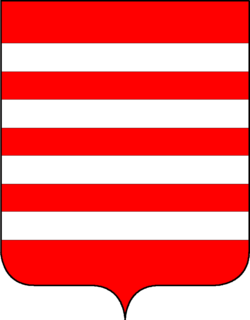 W
WStefano Magno was a Venetian chronicler.
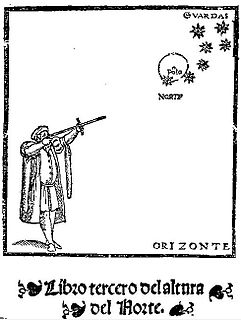 W
WPedro de Medina was a Spanish cartographer and author of navigational texts. His well-known Arte de navegar was the first work published in Spain dealing exclusively with navigational techniques.
 W
WEmanuel van Meteren or Meteeren was a Flemish historian and Consul for "the Traders of the Low Countries" in London. He was born in Antwerp, the son of Sir Jacobus van Meteren, Dutch financier and publisher of early English versions of the Bible, and Ottilia Ortellius, of the famous Ortellius family of mapmakers, and nephew of the cartographer Abraham Ortelius.
 W
WJean Molinet was a French poet, chronicler, and composer. He is best remembered for his prose translation of Roman de la rose.
 W
WSir Thomas More, venerated in the Catholic Church as Saint Thomas More, was an English lawyer, social philosopher, author, statesman, and noted Renaissance humanist. He also served Henry VIII as Lord High Chancellor of England from October 1529 to May 1532. He wrote Utopia, published in 1516, which describes the political system of an imaginary island state. He had died before it was published.
 W
WJohannes Nauclerus was a 16th-century Swabian historian and humanist. He was born Johann Vergenhans to a noble man of the same name. As was the fashion of the time, the family's name had been Latinized, with nauclerus, meaning "skipper," being a close translation of Vergenhans, meaning "ferryman." The family's coat of arms depicted a man on a sailing ship.
 W
WAlexander Neville (1544–1614) was an English scholar, known as a historian and translator and a Member of the House of Commons.
 W
WGonzalo Fernández de Oviedo y Valdés, commonly known as Oviedo, was a Spanish colonialist, historian and writer. Oviedo participated in the Spanish colonization of the West Indies, arriving in the first few years after Christopher Columbus, in 1492, became the first European to arrive at the islands. Oviedo's chronicle Historia general de las Indias, published in 1535 to expand on his 1526 summary La Natural hystoria de las Indias, forms one of the few primary sources about it. Portions of the original text were widely read in the 16th century in Spanish, English, Italian and French editions, and introduced Europeans to the hammock, the pineapple, and tobacco as well as creating influential representations of the colonized peoples of the region.
 W
WGuido Panciroli or Pancirolli was a sixteenth-century Italian antiquarian, historian, jurist and law professor at Ferrara, Padua and Turin. In his time he was renowned as a legal scholar, teaching students who came from all around Europe. Posthumously, he was well known for his innovative comparative survey, Rerum memorabilium, iam olim deperditarum, that brought attention to the loss of knowledge since the ancient world.
 W
WWilliam Patten was an author, scholar and government official during the reigns of King Edward VI and Queen Elizabeth I.
 W
WAntonio Pigafetta was a Venetian scholar and explorer. He joined the expedition to the Spice Islands led by explorer Ferdinand Magellan under the flag of King Charles I of Spain and, after Magellan's death in the Philippines, the subsequent voyage around the world. During the expedition, he served as Magellan's assistant and kept an accurate journal which later assisted him in translating the Cebuano language. It is the first recorded document concerning the language.
 W
WGiovan Battista Pigna (1530-1575) was an Italian humanist, poet and historian from Ferrara. A reformer of the University of Ferrara, Pigna was secretary to Alfonso II d'Este, Duke of Ferrara and court historian at Ferrara.
 W
WRui de Pina (1440–1522) was a Portuguese chronicler.
 W
WBalthasar Russow (1536–1600) was one of the most important Livonian and Estonian chroniclers.
 W
WBernardino de Sahagún was a Franciscan friar, missionary priest and pioneering ethnographer who participated in the Catholic evangelization of colonial New Spain. Born in Sahagún, Spain, in 1499, he journeyed to New Spain in 1529. He learned Nahuatl and spent more than 50 years in the study of Aztec beliefs, culture and history. Though he was primarily devoted to his missionary task, his extraordinary work documenting their worldview and culture has earned him the title as “the first anthropologist." He also contributed to the description of the Aztec language Nahuatl. He translated the Psalms, the Gospels, and a catechism into Nahuatl.
 W
WJohn Speed was an English cartographer and historian. He is, alongside Christopher Saxton, one of the best known English mapmakers of the early modern period.
 W
WBlas Valera was born in Levanto, Chachapoyas, Peru, in 1545.
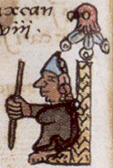 W
WAntonio Valeriano was a colonial Mexican, Nahua scholar and politician. He was a collaborator with fray Bernardino de Sahagún in the creation of the twelve-volume General History of the Things of New Spain, the Florentine Codex, He served as judge-governor of both his home, Azcapotzalco, and of Tenochtitlan, in Spanish colonial New Spain.
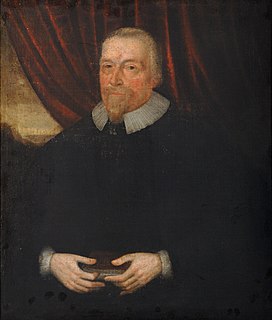 W
WDegory Wheare, also spelt Digory Whear was an historian, the first Camden Professor of Ancient History in the University of Oxford.
 W
WCount Froben Christoph of Zimmern was the author of the Zimmern Chronicle and a member of the von Zimmern family of Swabian nobility. This article is based primarily on Beat Rudolf Jenny's biography of him.
 W
WJános Zsámboky or János Zsámboki or János Sámboki, was a Hungarian humanist scholar: physician, philologist and historian.